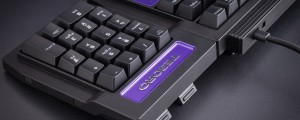Comparing Phenom II to Intel’s i7
We currently do not have an Intel Core i7 on hand to test with, but one of our members stepped up to provide his complete system to compare against the performance of our Phenom II. You will find only a small variety of benchmarks until we receive Intel’s latest to do a more thorough comparison.
We’d like to make one thing clear right off the bat: AMD does not intend for Phenom II to compete directly with Intel’s i7, but rather “Upper Midrange” processors at about the $275 price point. They made it pretty clear that the entry price into the i7 arena is far greater than that of the Phenom II and that Phenom II is a viable alternative to processors like Intel’s Core 2 Quad Q9300 and Q9400. Intel’s i7 920 is not a terribly expensive processor at under $300, but the cost of an X58 motherboard and a triple channel DDR3 kit is what makes it a very costly proposition. AMD 790GX boards and DDR2 kits are just plain cheap in comparison. At the time of writing this, a quality 790GX board sells at around $150 compared to more than double that for an X58 board. With that said, comparing the Phenom II 940 to the i7 920 is not really a fair comparison from a financial perspective. None the less, we still think it is important to at least see how Intel’s latest and greatest compares to AMD’s flagship.
We were happy to learn that one of our long standing forum members, Khaos, recently purchased a shiny new i7 920 system including an MSI X58 board and some Gskill DDR3. He was generous enough to run a few controlled synthetic benchmarks to provide us with at least something modern on the Intel front to compare the Phenom II to. It should be noted that it is not possible to conduct an apples to apples comparison between these two very different platforms, but we did our best to keep things as consistent as possible. We only ran Sisoft Sandra 2009 SP2 synthetic benchmarks as the obvious discrepancies between video cards would throw off any real world benchmarks.
Khaos’ i7 System Specifications:
- Intel Core i7 920 (2.83GHz)
- MSI X58 Platinum Motherboard
- G.Skill PI Black DDR3-1600 CL8
- Sapphire Radeon HD4870 1GB
- 300GB WD VRaptor System
- Antec Signature Series 650W PSU
Khaos simply loaded optimized defaults in the BIOS to obtain default clock speeds and memory configuration. His G.Skill DDR3 was set to run at 1066MHz and 7-8-8-19 timings. He is running Vista x64 like our test rig and disabled SuperFetch prior to running benchmarks as well.
Without further ado, let’s see how they compare.
Intel’s Core i7 is a monster when it comes to raw number crunching performance. It has little difficulty leaving the X4 940 trailing by a pretty significant margin, especially in the Dhrystone ALU test. To remain competitive, AMD really needs to give the next iteration of the Phenom processor – or whatever its next name will be – a real boost in FPU performance.
We see a less significant delta when it comes to cryptography processing. The Phenom II X4 940 actually outperforms the Intel Core i7 920 by a small margin in SHA256. AES256 processing favors the i7 but only slightly.
Even though Khaos left his DDR3 running at the default 1066MHz with far more slack timings than the DDR2, the i7 leads in memory bandwidth by almost 40%. Had we run the modules at their full PC3-16000 frequency, we would have seen an even larger delta. It is also amazing to see just how low the Q6600 bandwidth result is compared to the Phenom II and the i7. Intel really took memory bandwidth to the next level with the i7 compared to their previous generation.
When it comes to memory latency, the i7 leads a bit. You can see the three levels of cache in the graph above. The i7 has slightly more L3, which helps between about 6 and 8MB blocks and once in main memory for the 16MB test, it leads the Phenom II by about 15ns or so. Overall, both processors have pretty low latency across the chart.
We know that wasn’t a terribly comprehensive comparison, but we were pleased to get some results from Khaos to get an idea of how Phenom II compares to Intel’s latest. We think it is pretty obvious that Intel takes the cake. Their Core i7 920 is significantly more efficient clock per clock – especially in heavily multi-threaded scenarios – and boasts better memory bandwidth and latency.
Fortunately for AMD, the high cost associated with the i7 platform means that AMD’s Phenom II doesn’t directly compete with it. What does concern us, however, is that AMD does not have something available that demanding power users – that don’t care about price – can select as a viable alternative to the Core i7. We only hope that they have some big guns in the works. We sincerely miss the days of seeing $1200 FX-57s sitting on the shelf. It just doesn’t seem right for AMD’s flagship processor to price it at only $275.


















 Articles RSS
Articles RSS